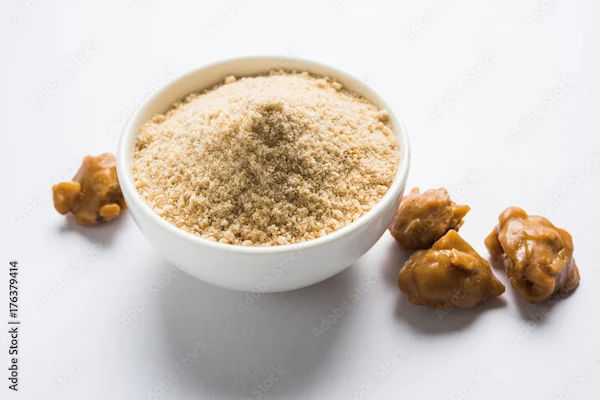GGT Test Overview and Normal Ranges
Learn about the GGT test, its purpose in evaluating liver function, normal ranges, and what abnormal results may indicate about your health.

Written by Dr. Rohinipriyanka Pondugula
Reviewed by Dr. D Bhanu Prakash MBBS, AFIH, Advanced certificate in critical care medicine, Fellowship in critical care medicine
Last updated on 13th Jan, 2026

If your doctor has recommended a GGT (Gamma-Glutamyl Transferase) test, you might be wondering what it is, why it’s needed, and what the results mean. Don’t worry—this article will explain everything in simple terms so you can understand its importance for your health.
What is a GGT Test?
The GGT test measures the level of Gamma-Glutamyl Transferase (GGT), an enzyme found mainly in your liver but also in other organs like the kidneys, pancreas, and bile ducts. This test helps doctors check for liver damage, bile duct problems, or excessive alcohol consumption.
Why is the GGT Test Done?
Your doctor may recommend a GGT test if you have symptoms of liver disease or to monitor liver health. Common reasons include:
- Unexplained fatigue or weakness
- Yellowing of skin or eyes (jaundice)
- Dark urine or pale stools
- Nausea, vomiting, or loss of appetite
- Abdominal pain or swelling
- Monitoring alcohol-related liver damage
- Checking bile duct blockages
It is often done along with other liver function tests (like ALT, AST, ALP) for a complete picture of liver health.
Consult a Top Hepatologist
Understanding GGT Test Results & Normal Ranges
GGT levels vary based on age, gender, and lab standards. Generally, the normal ranges are:
- Men: 8 to 61 U/L (units per liter)
- Women: 5 to 36 U/L
Higher-than-normal GGT levels may indicate:
- Liver disease (hepatitis, cirrhosis)
- Bile duct blockage (gallstones, tumors)
- Alcohol abuse or heavy drinking
- Fatty liver disease
- Certain medications (like statins, anti-seizure drugs)
Low GGT levels are usually not a concern but may be seen in people taking certain medications or with very controlled alcohol intake.
What If My GGT Levels Are High?
If your GGT is elevated, your doctor may suggest further tests to determine the exact cause. Some common next steps include:
- Liver function tests (ALT, AST, ALP, bilirubin)
- Ultrasound or CT scan to check liver structure
- Alcohol use assessment
- Review of medications that may affect the liver
Get Your Health Assessed
How Can I Lower My GGT Levels Naturally?
If your GGT is high due to lifestyle factors, you can take steps to improve liver health:
1. Reduce Alcohol Consumption
Alcohol is a major cause of elevated GGT. Cutting back or quitting can significantly improve liver function.
2. Eat a Liver-Friendly Diet
- Increase fruits & vegetables (especially leafy greens, berries, citrus fruits)
- Choose lean proteins (fish, chicken, beans)
- Avoid processed foods, fried foods, and excess sugar
- Stay hydrated (water helps flush toxins)
3. Exercise Regularly
Physical activity helps reduce fat buildup in the liver and improves metabolism.
4. Manage Weight
Obesity is linked to fatty liver disease, which can raise GGT levels. Losing even a small amount of weight can help.
5. Avoid Unnecessary Medications
Some painkillers (like acetaminophen) and other drugs can harm the liver. Always consult your doctor before taking new medications.
6. Quit Smoking
Smoking increases oxidative stress on the liver, worsening enzyme levels.
When Should You Get a GGT Test?
You may need a GGT test if:
- You have symptoms of liver disease
- You’re being treated for liver conditions
- Your doctor wants to check alcohol-related liver damage
- Other liver tests (like ALP) are abnormal
How to Book a GGT Test?
If your doctor has advised a GGT test, you can easily book a liver function test through Apollo 24|7. The process is simple:
1. Visit the Apollo 24|7 app or website
2. Select "GGT Test" or "Liver Function Test"
3. Choose a convenient time for sample collection (home or lab)
4. Get your reports online within 24-48 hours
Final Thoughts
The GGT test is a helpful tool to assess liver health and detect potential problems early. If your levels are high, don’t panic, many causes are manageable with lifestyle changes and medical guidance. Always follow up with your doctor for proper diagnosis and treatment.
Consult a Top Hepatologist
Consult a Top Hepatologist

Dr. Akshatha Manjunath
General Surgeon
8 Years • MBBS, MS
Bangalore
Apollo Clinic Bellandur, Bangalore

Dr. Pukhraj Singh Jeji
Gastroenterology/gi Medicine Specialist
13 Years • MBBS, MD ( Internal Medicine ), DM ( Gastroenterology ), Consultant - Gastroenterology
Bhubaneswar
Apollo Hospitals Old Sainik School Road, Bhubaneswar

Dr. Sushith C
General Physician
2 Years • MBBS
Bengaluru
PRESTIGE SHANTHINIKETAN - SOCIETY CLINIC, Bengaluru

Dr. E Prabhakar Sastry
General Physician/ Internal Medicine Specialist
40 Years • MD(Internal Medicine)
Manikonda Jagir
Apollo Clinic, Manikonda, Manikonda Jagir
(150+ Patients)

Dr. Pavan Kumar Y M
Gastroenterology/gi Medicine Specialist
5 Years • MBBS, MD Medicine, DM Gastroenterology
Bengaluru
Apollo Medical Center, Marathahalli, Bengaluru
Consult a Top Hepatologist

Dr. Akshatha Manjunath
General Surgeon
8 Years • MBBS, MS
Bangalore
Apollo Clinic Bellandur, Bangalore

Dr. Pukhraj Singh Jeji
Gastroenterology/gi Medicine Specialist
13 Years • MBBS, MD ( Internal Medicine ), DM ( Gastroenterology ), Consultant - Gastroenterology
Bhubaneswar
Apollo Hospitals Old Sainik School Road, Bhubaneswar

Dr. Sushith C
General Physician
2 Years • MBBS
Bengaluru
PRESTIGE SHANTHINIKETAN - SOCIETY CLINIC, Bengaluru

Dr. E Prabhakar Sastry
General Physician/ Internal Medicine Specialist
40 Years • MD(Internal Medicine)
Manikonda Jagir
Apollo Clinic, Manikonda, Manikonda Jagir
(150+ Patients)

Dr. Pavan Kumar Y M
Gastroenterology/gi Medicine Specialist
5 Years • MBBS, MD Medicine, DM Gastroenterology
Bengaluru
Apollo Medical Center, Marathahalli, Bengaluru






.webp)